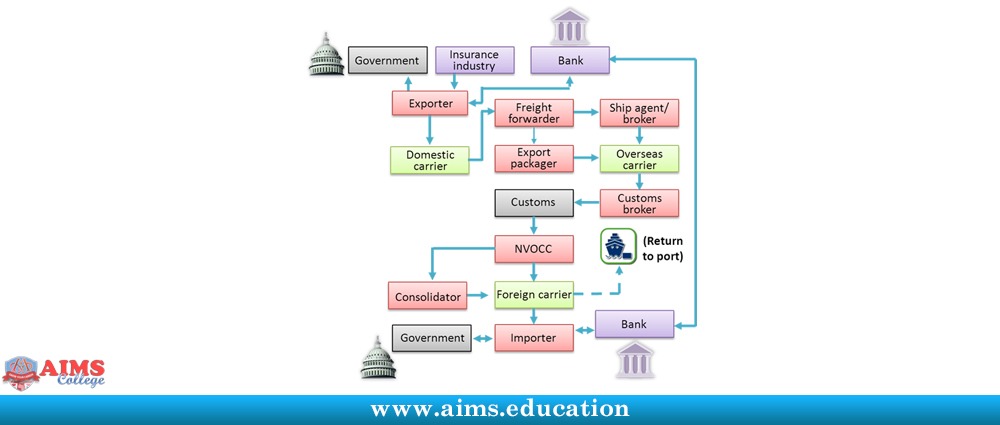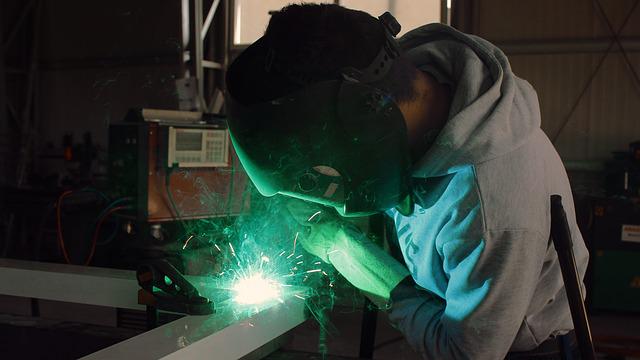
Amazon is looking for experienced professionals or those who are just looking to progress their careers. Industrial Engineers are responsible for ensuring that Amazon's processes operate smoothly and effectively. They use advanced analytical tools to identify and fix production defects. They also work to ensure that the company's products are manufactured to the highest quality standards.
They are responsible for creating, implementing and maintaining efficient systems that combine machines, materials and workers. They analyze the manufacturing process, reduce waste, and find ways to increase production. The industrial engineer is also responsible for designing new processes and equipment in order to increase efficiency.
Also, industrial engineers are responsible for improving safety procedures within industrial facilities. They use engineering principles to solve problems and take pride in creating solutions that increase the company's effectiveness and value. A variety of industries employ industrial engineers, including transportation, manufacturing, construction and energy. Industrial engineers are often employed in healthcare.

Industrial engineers often work in collaboration with other engineers to solve complex problems. They work long hours on weekends, holidays, evenings, and other days. They are also people-oriented. They are resourceful and highly creative. They work hard to improve processes and reduce waste.
Industrial engineers may also work for consulting firms, manufacturing companies, or research organizations. They may also work for logistics and transportation companies, as well as in companies' operations departments. Depending on the industry, companies that are most appealing to industrial engineers include companies that produce products, or those that work on research projects.
Industrial engineers usually work on business-related projects, so they can expect fair pay. A 40-hour work week is typical for industrial engineers. Some may even work overtime on weekends or holidays. Industrial engineers are resourceful and creative, and pride themselves on delivering innovative solutions to improve their company's efficiency.
Industrial engineers typically work in the healthcare, manufacturing, or transportation industries, and they may also work for consulting firms. They are often hired to help companies in all types of industries improve processes. They can also work for government agencies and research organizations. They might also be interested the human resources aspect of a company.

Industrial engineers are highly skilled and can expect to make a good living. The average salary for entry-level industrial engineers is $63,000 to $85,000 depending on their position. A master's degree is required for the best career opportunities. The industry-specific certifications earned by professional engineers can also help increase the chances of them staying in their field.
Industrial engineers work on a variety of projects at Amazon, including logistics, manufacturing, and technology. They are responsible for managing engineering deliverables, as well as defining and defining projects. They also ensure that Amazon has the fastest route between fulfillment centers and warehouses.
FAQ
What are manufacturing and logistic?
Manufacturing refers the process of producing goods from raw materials through machines and processes. Logistics covers all aspects involved in managing supply chains, including procurement and production planning. Sometimes manufacturing and logistics are combined to refer to a wider term that includes both the process of creating products as well as their delivery to customers.
What is the distinction between Production Planning or Scheduling?
Production Planning (PP) refers to the process of determining how much production is needed at any given moment. This is accomplished by forecasting the demand and identifying production resources.
Scheduling refers the process by which tasks are assigned dates so that they can all be completed within the given timeframe.
What is production planning?
Production planning is the process of creating a plan that covers all aspects of production. This includes scheduling, budgeting and crew, location, equipment, props, and more. This document is designed to make sure everything is ready for when you're ready to shoot. It should also contain information on achieving the best results on set. This includes shooting schedules, locations, cast lists, crew details, and equipment requirements.
It is important to first outline the type of film you would like to make. You may have already chosen the location you want, or there are locations or sets you prefer. Once you've identified the locations and scenes you want to use, you can begin to plan what elements you need for each scene. If you decide you need a car and don't know what model to choose, this could be an example. If this is the case, you might start searching online for car models and then narrow your options by selecting from different makes.
Once you have found the right vehicle, you can think about adding accessories. Are you looking for people to sit in the front seats? Or maybe you just need someone to push the car around. You may want to change the interior's color from black or white. These questions can help you decide the right look for your car. Also, think about what kind of shots you would like to capture. Do you want to film close-ups, or wider angles? Maybe you want to show your engine or the steering wheel. These factors will help you determine which car style you want to film.
Once you have determined all of the above, you can move on to creating a schedule. A schedule will tell you when you need to start shooting and when you need to finish. A schedule for each day will detail when you should arrive at the location and when you need leave. This way, everyone knows what they need to do and when. Book extra staff ahead of time if you need them. You should not hire anyone who doesn't show up because of your inaction.
You will need to factor in the days that you have to film when creating your schedule. Some projects can be completed in a matter of days or weeks. Others may take several days. It is important to consider whether you require more than one photo per day when you create your schedule. Shooting multiple takes over the same location will increase costs and take longer to complete. It is better to be cautious and take fewer shots than you risk losing money if you are not sure if multiple takes are necessary.
Budget setting is an important part of production planning. Setting a realistic budget is essential as it will allow you to work within your means. You can always lower the budget if you encounter unexpected problems. It is important to not overestimate how much you will spend. If you underestimate the cost of something, you will have less money left after paying for other items.
Production planning is a detailed process. But, once you understand the workings of everything, it becomes easier for future projects to be planned.
Is automation important for manufacturing?
Not only are service providers and manufacturers important, but so is automation. It allows them to offer services faster and more efficiently. It helps them to lower costs by reducing human errors, and improving productivity.
What are the jobs in logistics?
There are many types of jobs in logistics. Some of them are:
-
Warehouse workers – They load, unload and transport pallets and trucks.
-
Transportation drivers: They drive trucks and trailers and deliver goods and make pick-ups.
-
Freight handlers – They sort and package freight at warehouses.
-
Inventory managers – They manage the inventory in warehouses.
-
Sales reps are people who sell products to customers.
-
Logistics coordinators – They plan and coordinate logistics operations.
-
Purchasing agents: They are responsible for purchasing goods and services to support company operations.
-
Customer service agents - They answer phone calls and respond to emails.
-
Shippers clerks - They process shipping order and issue bills.
-
Order fillers: They fill orders based off what has been ordered and shipped.
-
Quality control inspectors: They inspect outgoing and incoming products for any defects.
-
Others - There is a variety of other jobs in logistics. These include transportation supervisors and cargo specialists.
What skills is required for a production planner?
To become a successful production planner, you need to be organized, flexible, and able to multitask. Communication skills are essential to ensure that you can communicate effectively with clients, colleagues, and customers.
Statistics
- (2:04) MTO is a production technique wherein products are customized according to customer specifications, and production only starts after an order is received. (oracle.com)
- You can multiply the result by 100 to get the total percent of monthly overhead. (investopedia.com)
- Many factories witnessed a 30% increase in output due to the shift to electric motors. (en.wikipedia.org)
- In the United States, for example, manufacturing makes up 15% of the economic output. (twi-global.com)
- According to the United Nations Industrial Development Organization (UNIDO), China is the top manufacturer worldwide by 2019 output, producing 28.7% of the total global manufacturing output, followed by the United States, Japan, Germany, and India.[52][53] (en.wikipedia.org)
External Links
How To
How to use 5S to increase Productivity in Manufacturing
5S stands to stand for "Sort", “Set In Order", “Standardize", and "Store". The 5S methodology was developed at Toyota Motor Corporation in 1954. It helps companies achieve higher levels of efficiency by improving their work environment.
This approach aims to standardize production procedures, making them predictable, repeatable, and easily measurable. This means that daily tasks such as cleaning and sorting, storage, packing, labeling, and packaging are possible. These actions allow workers to perform their job more efficiently, knowing what to expect.
Implementing 5S requires five steps. These are Sort, Set In Order, Standardize. Separate. And Store. Each step has a different action and leads to higher efficiency. You can make it easy for people to find things later by sorting them. When items are ordered, they are put together. After you have divided your inventory into groups you can store them in easy-to-reach containers. Labeling your containers will ensure that everything is correctly labeled.
Employees need to reflect on how they do their jobs. Employees must be able to see why they do what they do and find a way to achieve them without having to rely on their old methods. They will need to develop new skills and techniques in order for the 5S system to be implemented.
The 5S method not only increases efficiency but also boosts morale and teamwork. They will feel motivated to strive for higher levels of efficiency once they start to see results.